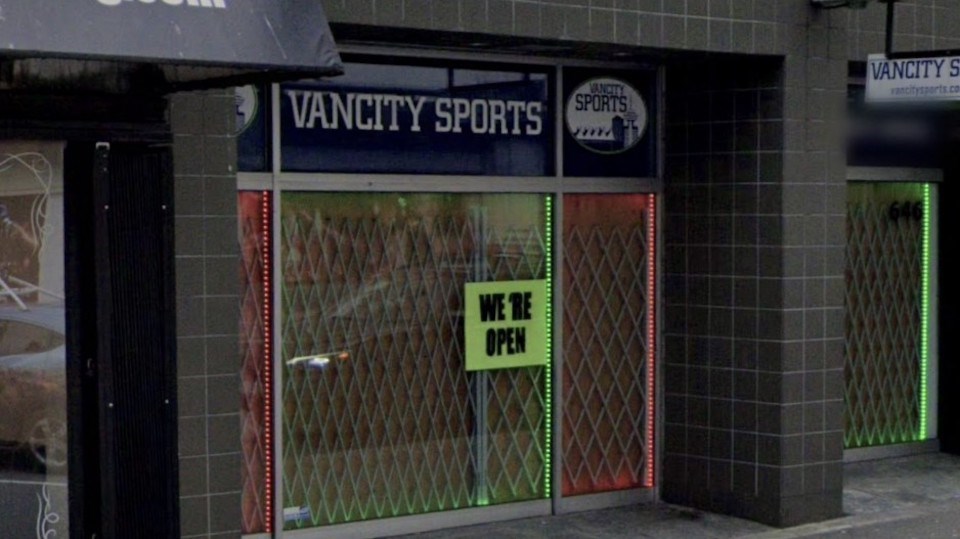Seymour Street's decline into being a magnet for homeless people, drug users and vandals is forcing one of its longest operating businesses to close shop.
Vancity Sports is permanently shutting its 32-year-old store at 646 Seymour Street by the end of May, owner John Czvelka told BIV.
"There is nothing worse for me to come to work every day, driving to work, and worry who's sleeping in front of my door," he said.
"It's an awful feeling driving to work, not knowing what to expect when you get to your business."
He said the number of drug users in the area is more than he has ever seen, and he has worked in the area since 1978, when he was employed at the Hudson's Bay, across the street from his store.
Czvelka boarded up his windows during the pandemic, and has kept them boarded up out of a fear that if he removes the plywood, vandals will break his windows as they have at neighbouring shops.
He said his property tax this year rose by $600 per month.
His rent for his approximately 2,000-square-foot store is about $9,000 per month, he said. He plans to move operations to a 2,000-square-foot space at Unit 12, 12371 Bridgeport Road in Richmond – a space that Czvelka said would save him about $6,000 per month in overall costs.
The new space, which would likely open in June, will include a 500-square-foot showroom, and 1,500-square-feet that will be converted into a customer fulfillment centre.
E-commerce sales have increased to be about 75 per cent of Czvelka's overall sales, he said.
His concern about the future of the 600 block of Seymour Street includes what is likely to be years of construction given that the Bay, and RioCan Real Estate Trust, are proposing to redevelop the iconic retailer's site to include a tower with one million square feet of office space.
Scaffolding is already up on the Bay's Seymour Street side, likely to test the building's strength and integrity. That has closed the sidewalk and taken up parking spaces, Czvelka said.
He added that his business is grappling with fewer office workers coming downtown as many are still working from home.
On top of this, Czvelka has had trouble getting products to sell because of supply-chain constraints.
It has taken him 18 months to get Canadian soccer jerseys, which he has been told will arrive soon. Had the shirts arrived when the team was playing qualification matches for the 2022 World Cup, he could have sold them already, he said.
The Vancouver Canucks' failure to make the playoffs this year means few people are now looking to buy team merchandise.
The Major League Baseball lockout earlier this year prompted manufacturers to delay making team products out of a fear that there would be no season, and therefore little demand for clothing, Czvelka said.
Some of those manufacturing plants have also suffered from COVID-19-related closures, he said.
"If somebody wants to drive out to Richmond, it's free parking," he said. "You won't have to pay $6."



